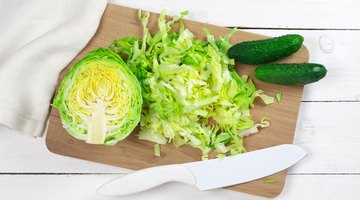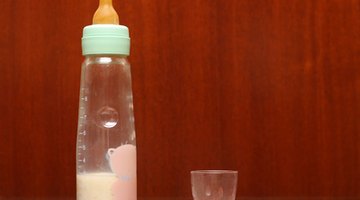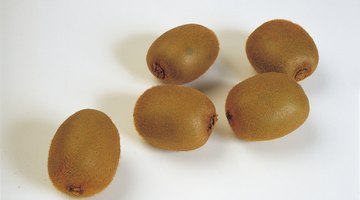Can an Infant Be Allergic to Breast Milk?
A baby cannot actually be allergic to his mother's breast milk, but may develop an allergy or intolerance that appears to be a breast milk allergy. In most cases, these problems can simply be solved through a change in the mother's diet. However, a few rare disorders exist in which the infant cannot continue to breastfeed because of difficulty digesting part of the mother's milk.
Breast Milk and Allergens
A baby may develop allergies to components that pass through a mother's milk from her diet. One common source of an allergy involving breast milk is dairy. The casein proteins in milk and other dairy products affect 2 to 3 percent of babies and can cause intestinal gas, abdominal pain, a rash around the mouth or anus, diarrhea and irritability. Other foods in the mother's diet can also cause an allergic reaction in the baby, including peanuts and soy.
Dealing With Allergies

What Are the Benefits of Infant Formula?
Learn More
The main solution for food allergies in a breastfed baby is to eliminate the offending foods from the mother's diet. In the case of a milk protein allergy, this includes milk, cheese, yogurt, ice cream, butter and other dairy products.include:
- In the case of a milk protein allergy
- this includes milk
- cheese
- yogurt
- ice cream
- butter
- other dairy products
If the baby is allergic to cow's milk protein, symptoms should go away within two to four weeks of the mother eliminating dairy from her diet. It is important not to stop breastfeeding unless absolutely necessary, since breast milk provides the best nutrition for developing babies for the first 6 months of life. If you are nursing an allergic baby, you may be able to reintroduce dairy to your diet once the baby is 6 months or older, since many babies outgrow milk allergies.
Food Intolerance
Another problem frequently mistaken for a breast milk allergy is lactose intolerance in the infant. The milk sugar lactose, like milk protein, can also make its way into breast milk from the mother's diet. In the case of lactose intolerance, however, there is no immune response against the offending substance. Instead, the baby is unable to produce enough lactase to digest the milk properly. This condition is usually temporary and the mother can continue to breastfeed and consume dairy products. In rare cases, an inherited form of lactose intolerance may require the addition of the enzyme lactase to expressed breast milk in order for the baby to consume it.
Galactosemia

About Nutramigen Infant Formula
Learn More
The disorder galactosemia is not a true allergy, but it is the only true disorder in which the baby cannot tolerate her mother's breast milk at all. In galactosemia, the baby's liver cannot break down galactose, another milk sugar that is also a component of lactose. Babies with galactosemia experience vomiting, diarrhea, failure to thrive and jaundice within days of birth. Babies with galactosemia cannot consume milk of any kind and need a special galactose-free formula to survive.











